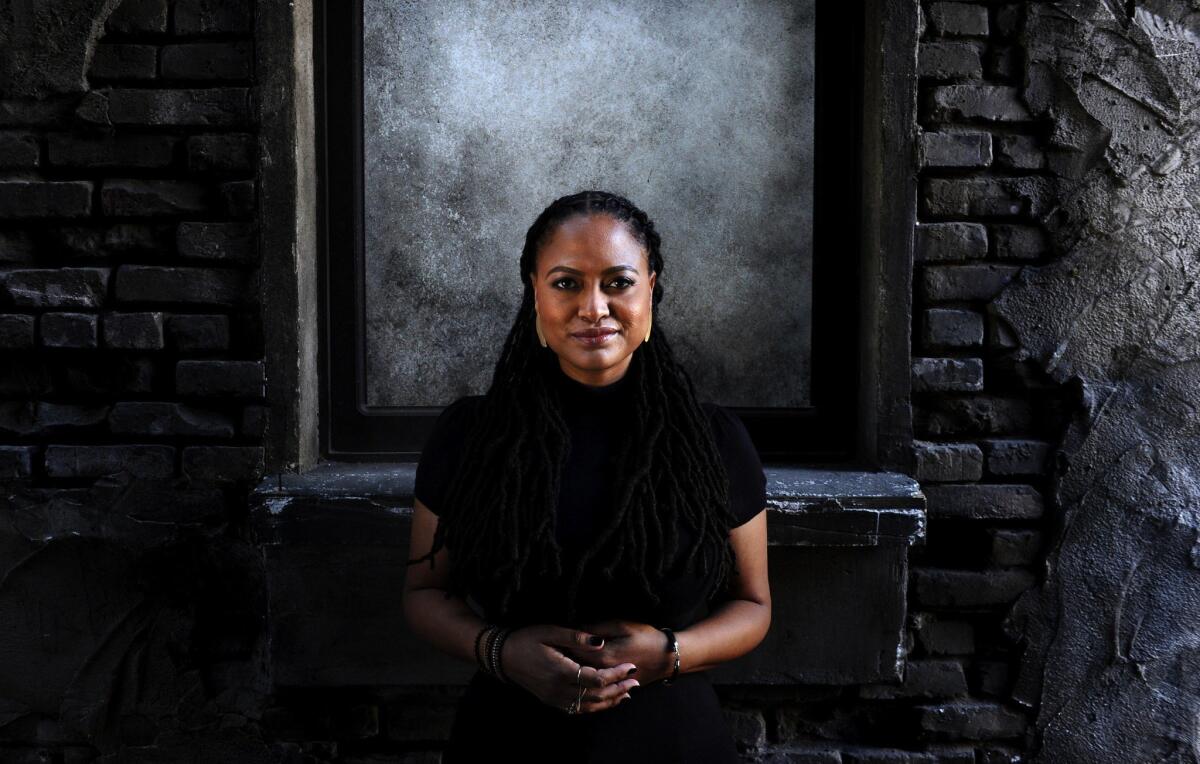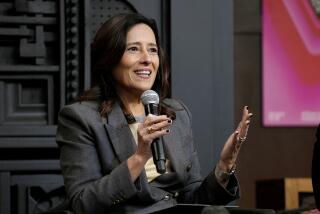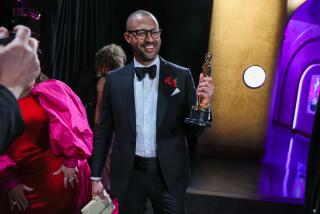‘Selma’ director Ava DuVernay on the secrets to indie film success

“Selma” director Ava DuVernay poses for a photo in 2014.
Ava DuVernay may be the most talked about woman in Hollywood right now, but though many want to know the “Selma” filmmaker’s thoughts on being snubbed in the Oscar nominations for directing, others in a packed Landmark Theatre in Los Angeles on Tuesday night came to hear about her quick ascent in the world of independent movies.
With her Martin Luther King Jr. biopic still in the running for the Academy Award for best picture, DuVernay avoided talk of controversy and instead focused on the creative and collaborative process with “Selma” leading man David Oyelowo and editor Spencer Averick in a panel discussion hosted by Film Independent.
DuVernay, Oyelowo and Averick worked together on the award-winning 2012 independent film “Middle of Nowhere,” and moderator Robin Swicord questioned them about their secret sauce when it comes to making films.
“Come to someone with your whole heart and be real and be invested,” DuVernay said about getting support for films early in one’s career. “Find your people. Find your tribe. Trust your feelings and grow your tribe around your work.”
That’s how she’s been able to get films made with little money, she said.
DuVernay’s road to the big screen has been one of inspiration to other filmmakers. She applied to, and was rejected by, Sundance seven times. On her eighth try, she got in and won the festival’s directing award with “Middle of Nowhere.” Now she sits on the festival’s board of directors.
She told those in attendance to keep bouncing back after rejection.
“So often in this industry we wait for permission,” DuVernay said. “We wait for someone to tell us it’s OK to do something. Sometimes you have to create your own systems, your own structures.”
DuVernay did just that in 2011 by founding the African-American Film Festival Releasing Movement, a distribution collective of black arts organizations dedicated to black independent films.
But even with her own system and structure, she needed funding. DuVernay spoke about making do with limited money, a task she knew all too well with only $200,000 to make “Middle of Nowhere.”
“Back into the number,” she said. “Figure that [stuff] out based on what you’ve got. Back into the number that you can get your hands on.”
Even when filming “Selma” with a budget of $20 million, DuVernay had to do the same thing.
“It was the first time I made a film legally,” she said to the crowd, which roared in laughter. “We couldn’t steal the locations, couldn’t just, ‘Let’s go film in here real quick.’”
After making sure everyone was paid properly, getting necessary permits and paying for costumes, the budget was gone, she said.
But “the best creativity happens within limits, and those limits pushed us to figure out ways to really elevate the narrative without all the bells and whistles that a film like that deserved to have with more money,” DuVernay said.
“The story of these real Freedom Fighters deserved to cost more than ‘The Interview,’” she said, referring to the Seth Rogen-James Franco comedy that cost $44 million. “This is how Hollywood values different narratives.”
Ultimately, DuVernay said, the best thing directors can do is have people have around them who will let them dream and be free with the material, despite conventions.
“Do what you want, what’s going to work,” she said.
Follow the reporter on Twitter: @TrevellAnderson
More to Read
Only good movies
Get the Indie Focus newsletter, Mark Olsen's weekly guide to the world of cinema.
You may occasionally receive promotional content from the Los Angeles Times.







